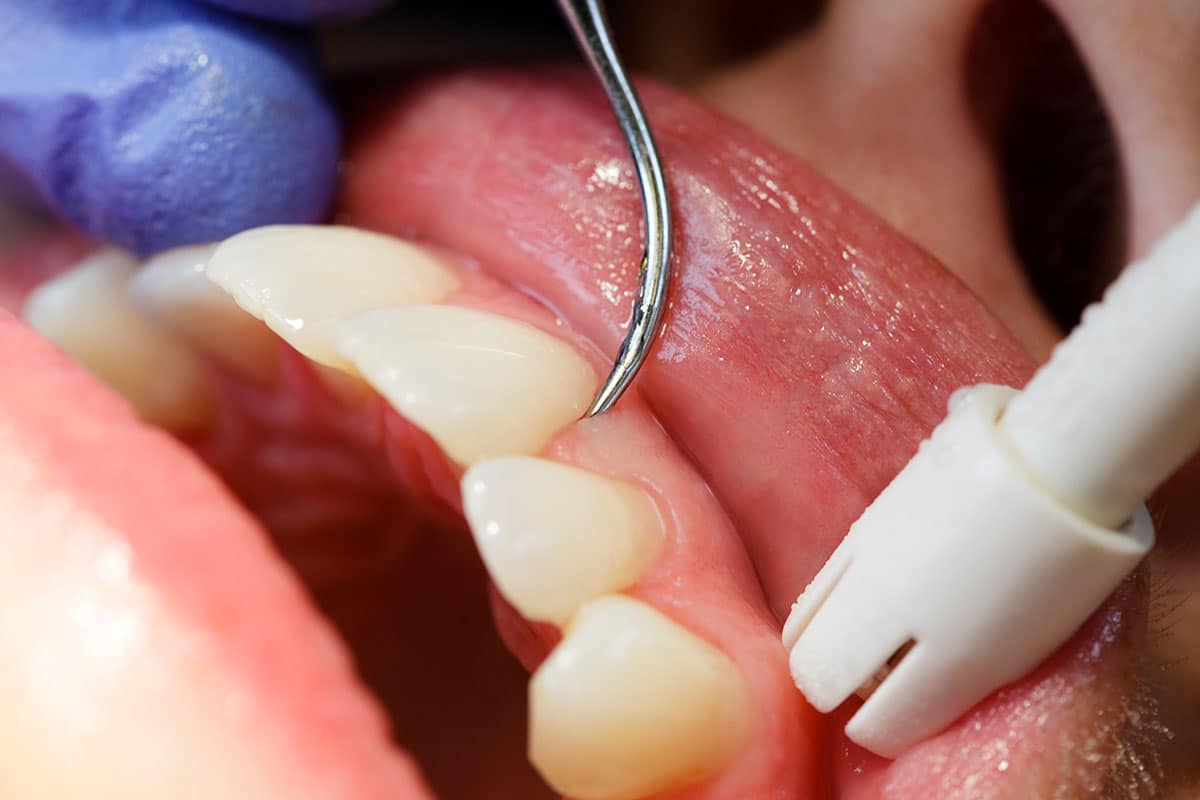
Do your gums bleed when you brush your teeth or look red or swollen? These are the earliest signs that you have gum disease, and once it takes hold, it won’t improve without professional dental care.
Whether you want to learn if you’re at risk for gum disease, schedule a preventive checkup, or get expert care for inflamed gums, you can depend on gentle, comprehensive care from Maria Victoria Sebastian, DDS, and our skilled team at Dentistry With a Smile in Livingston, New Jersey. In this blog, we explore eight issues that raise your risk of developing gum disease.
1. Dental hygiene deficit
Gum disease develops in stages. The problem begins when sugars from your food mix with saliva and bacteria. This mixture, called plaque, sticks to your teeth, holding bacteria against the enamel. Brushing and flossing remove plaque, preventing bacteria from damaging your tooth enamel and causing gum inflammation. If you don’t brush twice daily (and floss once a day), or brushing doesn’t get rid of all the plaque, it hardens on your teeth, forming dental tartar. Brushing can’t eliminate tartar. Unfortunately, bacteria live in the tartar, so they cause ongoing tooth damage and invade your gums. That’s when gum disease (gingivitis) begins. After gingivitis develops, gum inflammation worsens. Without treatment, gingivitis progresses to cause periodontitis. Periodontitis erodes your gums and jawbone, ultimately causing tooth loss.
2. Infrequent dental checkups
At your dental checkups, we deep clean your teeth and scrape away all the tartar you can’t remove with brushing. If you don’t schedule routine dental visits, tartar stays on your teeth and gradually causes gum disease. During your checkups, we also identify gum disease that may already exist and provide the treatment you need to restore your healthy gums.
3. Diabetes
Diabetes raises your risk of developing gum disease by changing the quality and quantity of your saliva. Saliva protects your gums by washing away food particles, preventing bacteria from growing, and reducing the acids released by bacteria. Diabetes reduces saliva production, allowing more bacteria to stay in your mouth. The condition also increases the amount of sugar (glucose) in your saliva, which feeds bacteria.
4. Tobacco use
People who smoke have double the risk of gum disease compared to those who don’t smoke. Using tobacco in any form raises your risk, and the longer you use it, the more your chances increase. Tobacco weakens your immune system, triggers inflammation, and interferes with healing — changes that cause gum disease and make existing disease progress faster.
5. Hormonal changes
High and low estrogen levels make women more vulnerable to gum disease. High estrogen levels, which occur naturally during pregnancy and puberty, amplify gum inflammation. Low estrogen increases your risk of gum disease because it decreases saliva.
6. Misaligned teeth
Crooked, crowded, and overlapping teeth are roadblocks to cleaning your teeth. When your teeth aren’t straight, bacteria
and plaque settle into areas you can’t easily reach with your brush, setting you up for gum disease. Our comprehensive orthodontic care can restore straight teeth, improving your gum health while also beautifying your smile.
7. Medications
Certain medications may lead to gum disease by affecting your saliva production and causing gum overgrowth or inflammation. A few examples include medications that treat high blood pressure, epilepsy, and autoimmune diseases.
8. Imbalanced diet
Your diet can support your dental health or increase your risk for gum disease. Here are two examples: Vitamin C Though dental health depends on a balanced diet supplying all the essential vitamins and minerals, vitamin C is one of the most crucial for your gums. Vitamin C builds and strengthens your gums and fights inflammation. A vitamin C deficiency causes your gums to break down and bleed. In addition to citrus fruits and juices, strawberries, red peppers, broccoli, potatoes, and tomatoes are also good sources of vitamin C. Sugary products A diet loaded with sweets and products with added sugar contributes to gum disease. Excessive sugar consumption causes inflammation, promotes bacterial growth in your mouth, and weakens the ligaments that attach your teeth to your gums. Call our office or book an appointment online today to schedule a preventive checkup or learn if you’re at risk for gum disease.
